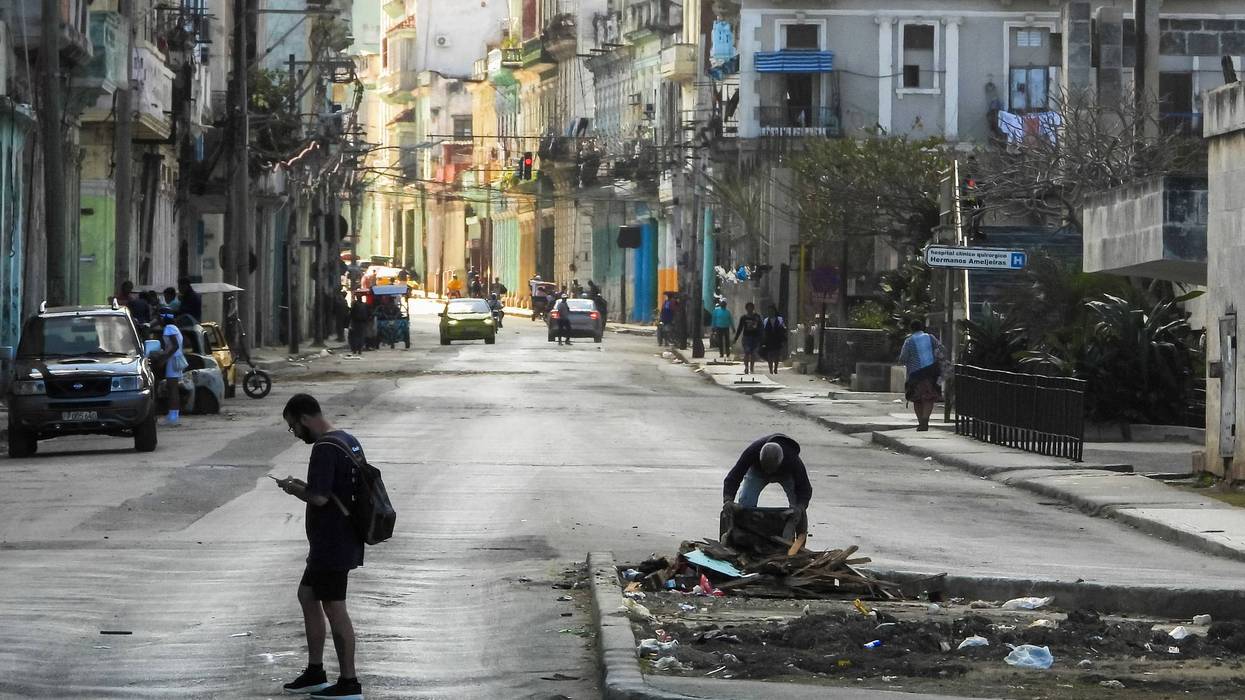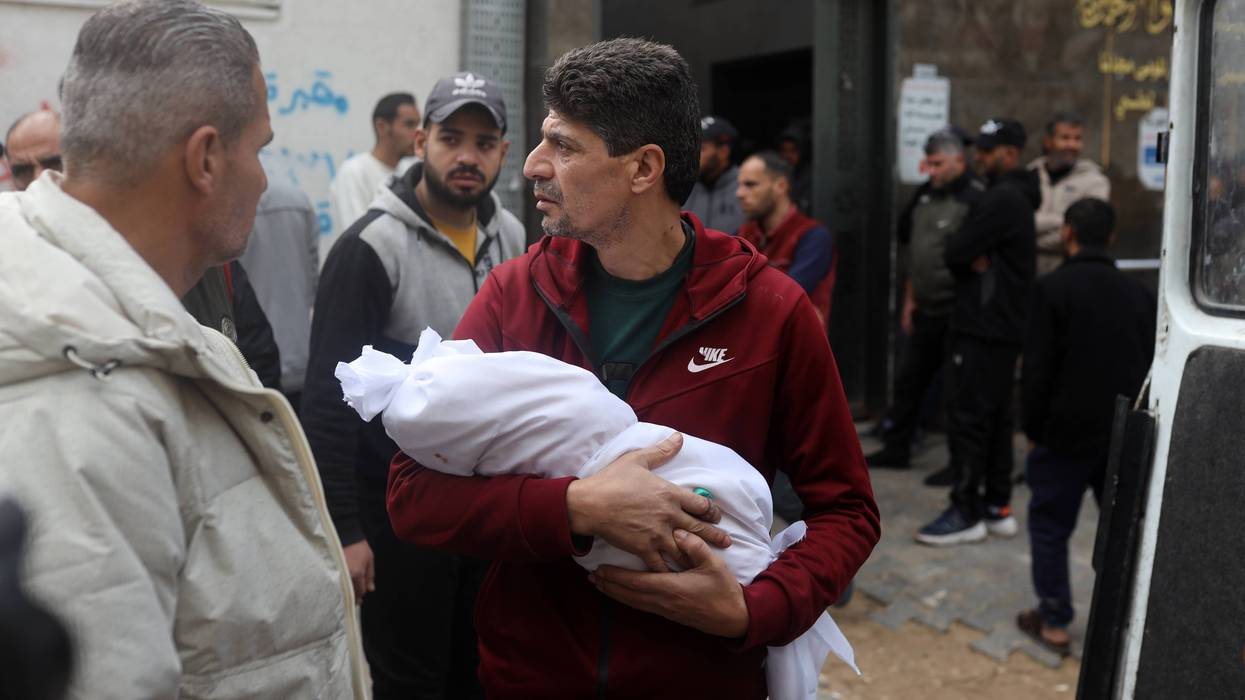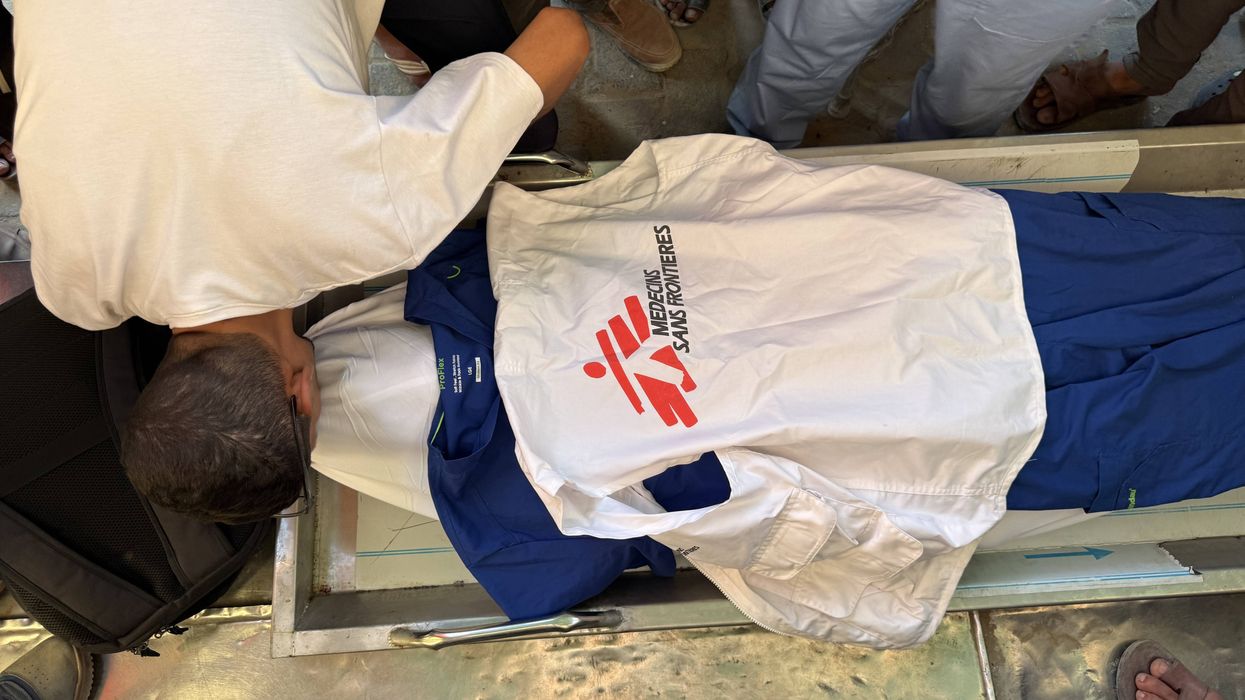By defunding and delegitimizing The United Nations Relief and Works Agency for Palestine Refugees in the Near East (UNRWA), the primary agency tasked with aiding Palestinian refugees; and by leveling accusations against humanitarian and health personnel, in the absence of meaningful global pushback, Israel has further entrenched a longstanding system of weaponized aid.
While the Israeli government initially framed the suspension of aid groups as being linked to their failure to comply with new registration requirements, it later noted in a statement that the process was “intended to prevent the exploitation of aid by Hamas, which in the past operated under the cover of certain international aid organizations, knowingly or unknowingly.”
Such criteria not only regulate aid work; they effectively silence dissent, conditioning the ability to deliver humanitarian assistance on political conformity.
Israel has long accused Hamas of exploiting humanitarian aid, despite such claims having repeatedly been debunked, including by senior Israeli military officials themselves.The new regulatory framework extends well beyond technical compliance. It introduces explicitly political and ideological conditions for aid delivery, disqualifying organisations that have supported boycotts of Israel or engaged in “delegitimization campaigns.”
Such criteria not only regulate aid work; they effectively silence dissent, conditioning the ability to deliver humanitarian assistance on political conformity.
The dismantling of UNRWA was a critical test case. For decades, the agency served as the backbone of civilian life for Palestinian refugees, providing healthcare, education, food assistance, and social services, under conditions of Israeli occupation and siege.
After October 7, 2023, Israel intensified its efforts to recast UNRWA not as a humanitarian agency operating under an international mandate, but as a political problem to be neutralized.
Allegations that a limited number of UNRWA employees were affiliated with Hamas, or involved in the October 7 attacks, were rapidly generalized into claims about the organisation as a whole. These claims triggered sweeping donor suspensions—including the immediate freezing of US funding, among UNRWA’s largest sources of support—illustrating how fast states are willing to act on evidence-free allegations from Israel, whose overall goal is to avoid global scrutiny of its crimes.
The persecution of UNRWA thus demonstrated how easily a central pillar of the humanitarian system can be dismantled, setting the stage for what would come next, as Israel launched a broader attack on international aid groups operating in Gaza.
In the months that followed, Israel blocked UNRWA’s operations on the ground and passed legislation criminalizing its activities across historic Palestine.
The response from the international community was striking in its weakness: While some donors ultimately resumed funding to UNRWA, no binding enforcement mechanisms were activated, nor were any serious political costs imposed on Israel.
The persecution of UNRWA thus demonstrated how easily a central pillar of the humanitarian system can be dismantled, setting the stage for what would come next, as Israel launched a broader attack on international aid groups operating in Gaza.
The consequences of this latest move are devastating. For decades, such organizations have provided essential services, amid the systematic degradation of civilian infrastructure and repeated assaults on healthcare in Gaza. Groups like Doctors Without Borders and Medical Aid for Palestinians offer vital resources for emergency and trauma care, along with other key services to sustain Gaza’s fragile health system, at a time when many hospitals are damaged or out of service.
Buffers Against Collapse
The centrality of international aid groups to Gaza’s survival is itself a measure of the depth of destruction imposed on Palestinian society. Such actors have long operated in spaces where Palestinian institutions have been dismantled, and political solutions deferred.
In the absence of an end to Israel’s occupation and siege, their presence has become one of the few remaining buffers against total collapse. In the context of an ongoing genocide and the destruction of the infrastructure required to sustain life in Gaza, stripping away the remaining humanitarian presence amounts to a direct assault on survival itself.
The Israeli government has sought to downplay the impact of the suspensions by asserting that the targeted organisations “did not bring aid into Gaza throughout the current ceasefire, and even in the past their combined contribution amounted to only about 1% of the total aid volume.”
In Gaza, where Israel has already destroyed the material conditions of life, the suspension of humanitarian operations completes this logic.
But this calculation of material aid fails to capture the nature of the work and services these groups have provided, including specialized medical care, trauma surgery, rehabilitation for injured and disabled people, psychosocial and mental health services, and sustained institutional support to keep Gaza’s collapsing health system functioning.
In 2025 alone, Doctors Without Borders carried out nearly 800,000 outpatient consultations and treated more than 100,000 trauma cases in Gaza, while Medical Aid for Palestinians made many critical interventions, including through expanded cancer care in the territory’s north.
Israel’s 1% calculation, which has not been independently verified, reduces humanitarian impact to quantitative supply indicators, rather than lifesaving capacity. To present these organizations as marginal is not a factual assessment, but a narrative designed to normalize their removal.
What emerges is a coherent strategy: first, producing dependency through siege, destruction, and institutional dismantling; then, weaponizing that dependency by controlling or withdrawing the means of survival.
In Gaza, where Israel has already destroyed the material conditions of life, the suspension of humanitarian operations completes this logic. This is not a failure of humanitarianism, but part of a broader genocidal strategy, where the regulation and withdrawal of aid is used to render survival itself increasingly impossible.




